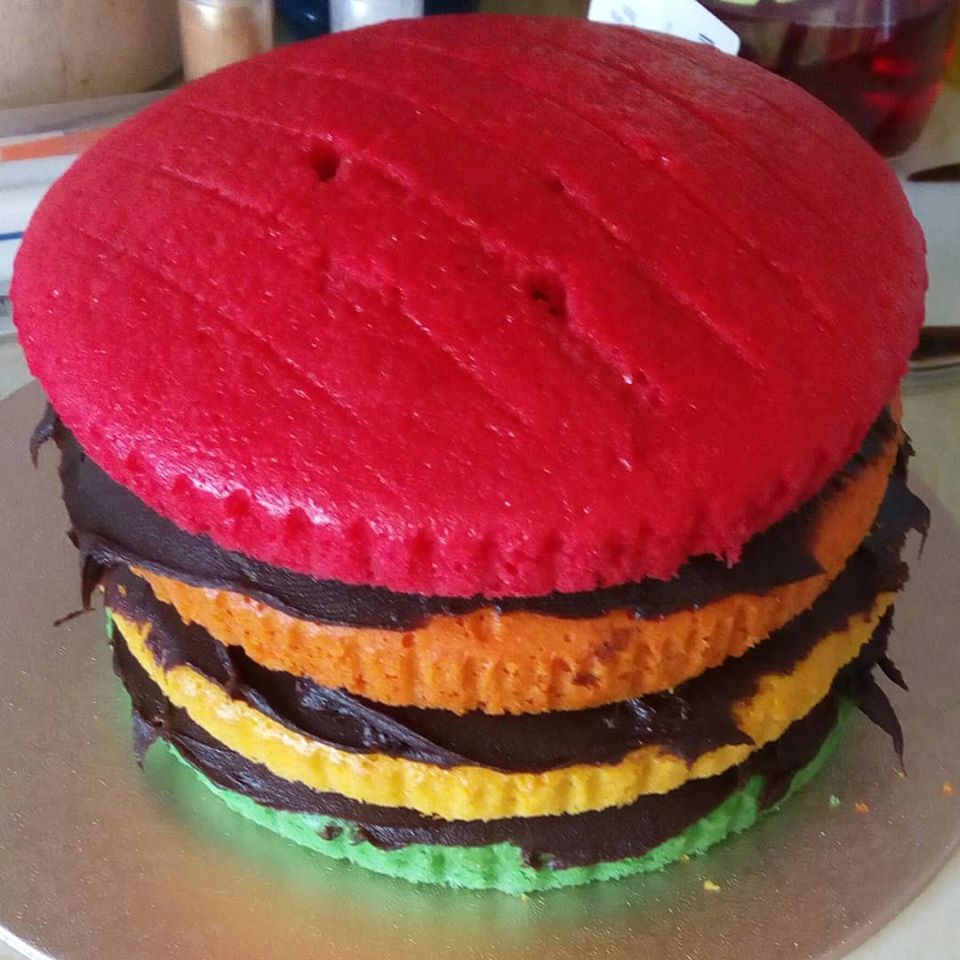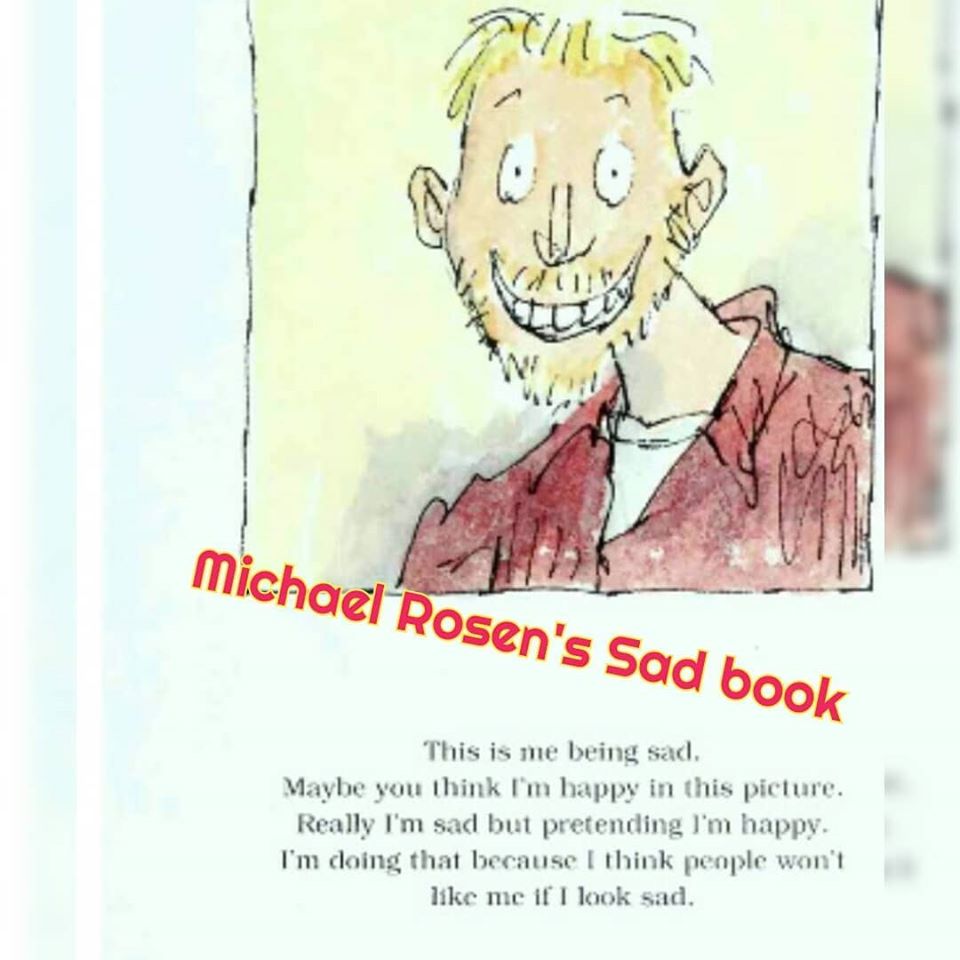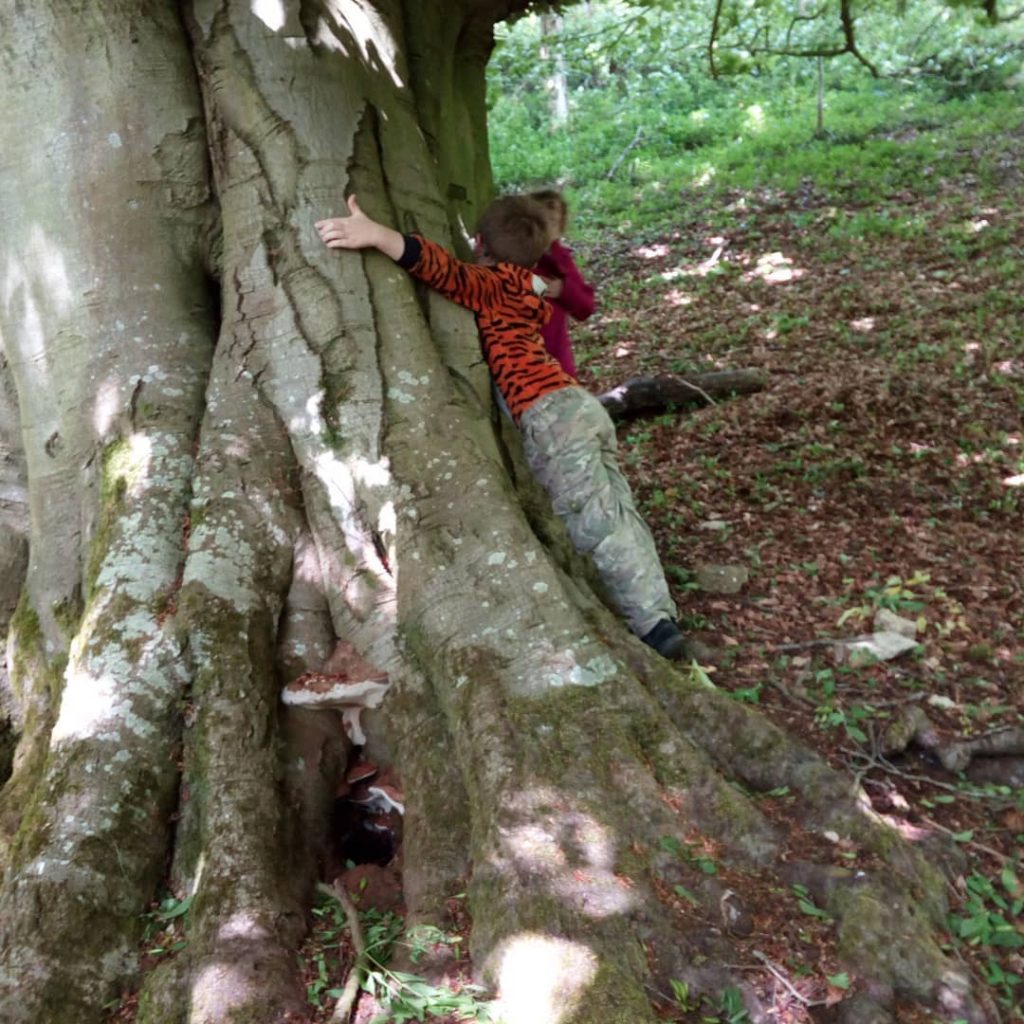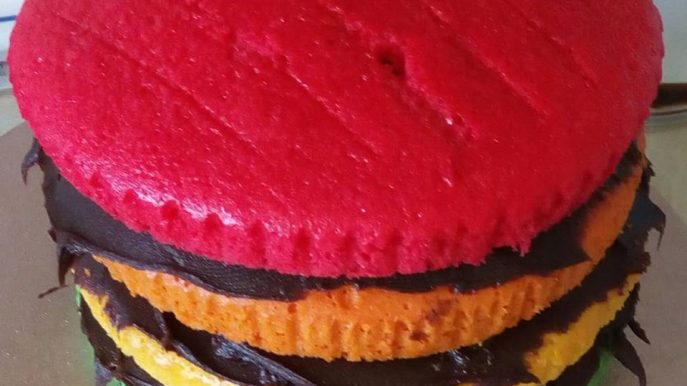Mental Health Awareness Week I
Seven years ago our three older ones came to live with us, to be our children, to be adopted.
Simply thinking about this makes my head spin, and I stand in
awe at their strength and resilience. They take life as it comes, sing, smile
and skip along regardless. Seven years have just flown past.
Their lives are multi-layered though, smiles and
sweetness, stuck together by epic meltdowns and rages. A bit like a rainbow
cake, its layers glued together by chocolate icing. Once the monumental storm
has passed, the cuddles appear again, sweeter and stronger than ever, safe in
the harbour, knowing they are still loved, still cherished regardless of their
stormy behaviour.
Some people see only the bright smiles, telling me
how together their lives are disregarding the mentions of meltdowns. After all,
‘all children are upset every now and then’. Some see the storms, telling me
how this ended for others…

Our hearts might ache during storms, melt seeing
their smiles, love at all times. Our children are beautiful and amazing, but
they can’t heal themselves. We love them, but we can’t glue broken hearts
together like their toys. It can make us feel powerless, desperate to help
them, to ‘fix’ them.
Do we worry? No, for we trust the One who commanded
the storm to be still…We trust Him, and hope in Him. Is it going to be a long
road? Quite likely, but already they have come such a long way!
We hurt for them, for their brokenness, for their
grief. It’s an honour to comfort them, to hold them, to be with them… It’s a
joy to hear their chatter, jokes and their singing, to feel their squishy hands
and arms around us…
Just remember how we all have more than one layer…
Mental Health Awareness Week II

The psychologist attached to our adoption agency showed us this book, Michael
Rosen’s Sad Book, as it resonated with lots of us. The smiling face on the
first picture, telling the readers that actually, that is his sad face.
It still grieves me when people tell me how happy my daughter
was on a particular day, like an activity day. Just because she walked round
with a huge smile. It is a wonderful way to attract people, and sometimes she
is genuinely happy. Big groups, big expectations, unknown activities don’t
thrill her though, but a huge smile will be firmly in place.
School (for the one year she was in) kept telling me
how well she was doing, how happy and settled she was…Because she smiled all
day…
However, it was just her mouth smiling, her eyes did not
join in… it was simply a defence mechanism, a way to survive well…
I felt like singing the first time she was
sad, felt sad and actually looked sad!! What a brave thing to do,
to recognise, acknowledge and share sad feelings!
Hurray for all our brave, resilient children who can and will show their feelings! And don’t always accept a smile at face value, literally!
Mental Health Awareness Week III
What if “happy” doesn’t feel happy? What if a treat feels wrong, undeserved? What if a reward feels threatening, making you wonder what the strings attached will be? What does a ‘wonderful day out’ feel like, and what if it doesn’t feel wonderful, but wrong?
For some adopted children having a treat, a lovely day out, a
special meal…all those wonderful moments feel scary, weird and thoroughly
uncomfortable. It gives them an unknown feeling, it feels wrong,
undeserved.

Those sweet moments need to be brought back to “normal”, their normal, which is usually our “awful”. So those children will undo the ‘good’ feelings and exchange them back for ‘bad’ feelings. They will try to anger the adults around them, they will break their new toys, they will rip up new clothes. It wasn’t meant for them they shouldn’t have beautiful things, sweet moments.
It is hard for our children to listen to
motivational talks, as they can’t imagine “happy”, or “feelings
good about yourself” or “achieve your ambition”. Their ambition
is to stay alive, accumulate stuff, make people like them so they can stay
alive longer and accumulate more stuff…
It’s hard to support someone’s mental health
who feels they should have poor mental health. Someone who feels they deserve
bad outcomes, as they can’t imagine what positive outcomes would feel like.
Being ‘good’ could feel totally out of reach, and sometimes a chosen fail will
feel better than an ‘almost made it, but failed’ moment. So they will make sure
they don’t earn house points, stickers, rewards… Imagine trying to earn a
sticker from the teacher, just for her to turn round and tell you that you
weren’t good enough. So it’s better to decide that you don’t even want the
silly sticker in the first place. That way, nobody has the power to withhold the
sticker.
It’s heart-breaking to see a child fearful of
fun, fearful of good times, looking to sabotage the good times, in order to get
back to “normal”. It’s so wonderful to see them starting to accept
compliments, accept good times, accept hugs…
I’m so grateful for people in my children’s lives who keep on encouraging them, who don’t go along with their sabotage efforts, but consistently cheer them on.
Mental Health Awareness Week IV
I asked him to put his arms round the tree, and he rolled his eyes at me,
telling me it wouldn’t work…As he’s the littlest, he did it anyway.

He knew it wasn’t his fault, he knew he wasn’t a failure just
because his arms wouldn’t go round the huge tree. His little boy’s voice
chattered on, “See? Nowhere near round it. This tree must be really old, it
must be at least a hundred years old. Maybe even two hundred. Do you think it
will be a hundred years old? Do you…”
Sometimes children with early years trauma blame
themselves for their trauma, convinced they have failed at life. They will
subsequently blame themselves for every negative thing in life. “I knew it would
rain n my birthday. My birthdays are never sunny. I knew the shop wouldn’t sell
those biscuits anymore.” (It’s amazing how many disasters they were able to predict,
with hindsight!)
In order to prove to themselves and others that
they’re amazing little people (they’re totally not convinced, but as loving
parents we praise them, commend them, tell them how much we love them), so
they’ll do something to tests this, something incredible, something that only
an adult can do, something that might need hours of training, special
equipment…
They won’t be able to achieve their wild goal. They
can’t get a driving licence at ten, they won’t be able to carry four heavy
shopping bags. The failure is an epic one. They won’t look at the goal, roll
their eyes and say, “Well, it was a bit of a wild goal!” My younger
ones will. They will say, “Well, I did do my best!” (My youngest favourite
sentence is, “Well, you can’t blame me…” Even if sometimes we actually could…)
Instead, they’ll sit down in a heap and say, “I
knew I was useless!” Or they’ll turn their shame on you, and shout,
“I know you hate me! The whole world hates me!” You being there,
witnessing their failure , hurts. It floods them with shame. Which means they’ll
look for something to do that will prove they weren’t a failure after all. Something
huge and incredibly amazing. Like apply for an PHD at age eight.
It’s a wonderful thing to support healthy mental
health in children, helping them to be realistic in their goals, to break down
their goals in manageable chunks. It’s sweet to say, you can be or do anything
you want. This will work for a lot of children, I’m sure. Some children need a
little help in defining ‘Anything’. Buckingham Palace doesn’t really accept applications
for the position of Queen.
It’s wonderful to see healing of the mind taking place, even though we grieve about the damage done… Helping children is a long term project, and sometimes the changes can be small, and slow. But we trust in God, Who can restore the years that the locusts have eaten…
